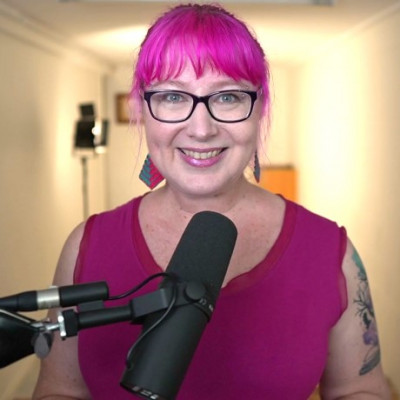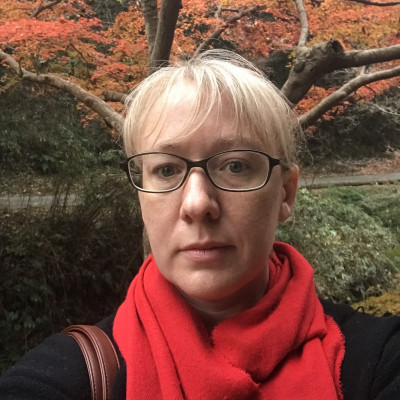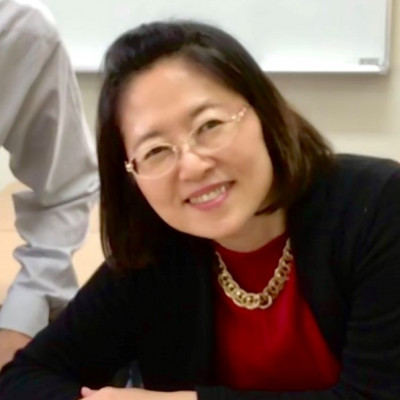Sessions / Workshop (80 mins)
Beyond the Lyrics Gap Fill: Low-Preparation, High-Participation Activities Using Songs in Class #2789
The use of music in language classes has long been connected to increased motivation and engagement, enhanced intercultural awareness, and improved learning outcomes for students (Talada, 2015). Language teachers are thus often keen to incorporate songs into their lessons, but the challenge can be determining the best way to do so (Bos, 2019). Although “Gap Fill” listening exercises are perfectly valid, they are often overused, as teachers may be time-poor, or unaware of what could be done with a song in the language classroom. In this workshop, we explore a variety of song-based activities, with a focus on three areas: improving language skills, building community, and stimulating creativity. This immersive workshop is conducted in line with principles of experiential learning (Kolb, 2015), with opportunities for participants to experience practical ideas, then reflect on how they can implement these in both the physical and virtual classroom.
Using Cloud Computing to Accelerate Feedback and Promote Transparency #2801
This workshop will explain and demonstrate the use of Google Workspace applications to build a transparent learning environment. It demonstrates an e-syllabus that gives students a clear idea of what sort of assignments to expect. The use of Google Forms and Sheets to accelerate feedback will briefly be explained and demonstrated thereafter. Finally, I will focus on how to build and disseminate a grade book that permits students to monitor their progress in a course and to access and submit incomplete assignments. Participants will be given the opportunity to trial each of the applications, and the outcome of this workshop should be the ability to build a dynamic grade sheet that can be shared with students (all the while preserving anonymity). Although the context of this presentation is from a tertiary education setting, the basic premises and the applications that will be demonstrated could readily be used at many levels.
Re-imagining ClassDojo as a Learner-Friendly, Adaptable Learning Management System #2672
A simple to use, organized, and welcoming learning management platform is something many of us have sought out during the pandemic in hopes of creating greater stability and connection. Though it was never intended to be an LMS, re-imagining ClassDojo to function in this capacity has turned out to be a solution worth sharing. During the workshop, attendees will learn from classroom experience over the last two years about how ClassDojo can be set up effectively as an LMS and how the tools on the platform can be used to support neurodiversity and rapport between students and teachers. Attendees to this workshop will have an opportunity to try out the student view for themselves to get a feel for what it would be like to use ClassDojo as a learner, and will have a chance to create their own class on the platform during the session.
Learning From Teachers’ Perceptions About Moving to Online Education During COVID-19 #2749
This workshop is based on the perceived strengths, weaknesses, and challenges of English teachers in Japan, who were compelled to conduct lessons online during the pandemic in 2020. Throughout Asia, educators believed they were prepared for teaching online. However, the situation in Japan revealed that experience, training, and attitudes towards teaching with technology can affect learning. This workshop first presents a comprehensive literature review of how teaching online influences pedagogy, working with technology, learning, participation, and communication. Then, problems and recommendations reported by Japanese teachers will be presented, and participants will be invited to discuss solutions based on their personal experiences with online education and from the theories presented earlier. Examples include a) recognizing the influence of synchronous and asynchronous activities on communicative competence, and b) how to monitor students’ participation in virtual synchronous classrooms. This workshop provides professional development for solving technical and pedagogical challenges to teaching online worldwide.
Making Friends with Machine Translation: A Hands-On Approach #2758
As Susan Jones, a translation teacher at Kobe College, put it: machine translation (MT) is "here to stay." As technology improves, it is becoming harder for teachers to detect it or to prevent it in student-generated texts. The tendency for teachers to resist MT may come from a fear that learning is minimal when students unquestioningly trust MT output. This presentation proposes helping our students work with MT in order to benefit their learning as well as their writing. In this workshop, participants will first experience different types of MT apps and discuss the differences. We will then consider the limitations of MT with respect to cultural differences and new or specialized terminology. Finally, we will discuss ways to help students help themselves in class. As time allows, the audience will have the chance to bring their own texts to be translated and discussed.
Online Flipped Learning Approach for Improving Communicative Competence, Collaboration and Student Engagement #2670
This workshop presents Helaine Marshal’s (2017) Synchronous Online Flipped Learning Approach (SOFLA), developed specifically for online and hybrid classes. The presenters have adapted the SOFLA framework in Online F2F school and hybrid college curriculums and online Business Managers’ Courses. SOFLA has been beneficial in improving student autonomy, participation, and independent communication. The workshop will first discuss what kind of activities should be moved out of class and what should be practised during class to maximize comprehension, retention, collaboration, and communicative competence. Participants will then be encouraged to share their curriculum limitations and discuss solutions. Finally, examples of using technology to monitor student participation and interaction covertly and provide formative assessment are presented. This workshop demonstrates the benefits of the SOFLA framework, how lesson time can be more effectively used for communication and how the roles of teachers and students change throughout the SOFLA process.






